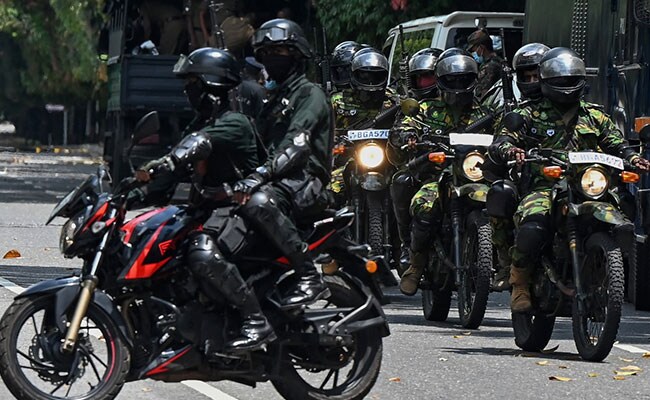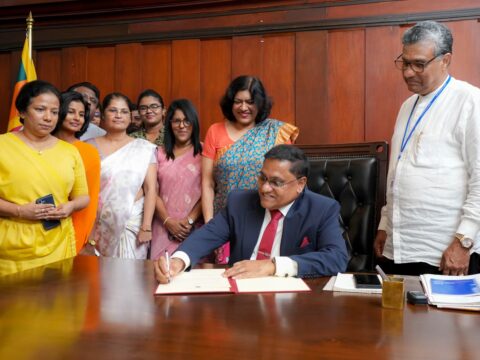COLOMBO: The Sri Lankan authorities must not impose a blanket order authorising use of force during the state of emergency that has been announced and refrain from use of the armed forces to police people’s protest said Amnesty International, following a new order empowering armed forces to maintain law and order in Colombo.
“The recent escalation of the authorities’ response to protests by calling in the armed forces, firing at protestors and excessive use of tear gas which resulted in the death of one person yesterday is deeply worrying,” said Yamini Mishra, Amnesty International’s South Asia Regional Director.
On the morning of 13 July 2022, thousands of protestors started making their way towards the Prime Minister’s office and the Parliament in Colombo. After an angry face-off, protesters breached the gates and took over the Prime Minister’s office. Amnesty International staff present at the protest location confirmed that law enforcement officers fired volleys of teargas against people, including children and journalists some of whom were seen escaping the plumes while coughing and sputtering. Dozens of protesters were injured, and one was reported dead. At Galle Face, helicopters flew low overhead, where a rolling peaceful protest site had been established three months ago in the prolonged agitation over the economic crisis in the country. At another protest near the Parliament later the same day, more than 80 people were reported to be injured and admitted to hospital.
At 3pm the Prime Minister Ranil Wickremesinghe delivered a televised address in which he said he had ordered the military to “do whatever is necessary to restore order”. On 14 July 2022, a press release was issued by the army announcing a warning that they will use force to restore law and order in the country.
Any blanket order authorising use of force by armed forces is problematic even during times of emergency. The armed forces should not be involved in the policing of public assemblies, since they are trained to fight against enemies and not to protect and control civilians.
Amnesty calls upon law enforcement agencies to act with restraint to avoid further serious injury and loss of life. They may only use the minimum level of force necessary force to bring a situation under control where doing so is strictly necessary and proportionate. Even in instances where some parts of a protests turn violent, law enforcement must assess the situation on a case-by-case basis with use of force only where absolutely necessary and only against those engaged in violence. It must be strictly proportionate to the situation faced by law enforcement, which means authorities must not cause more harm than they seek to avert.
“At a time when the country is facing a dire economic crisis and protests are growing in scale, authorities must make comprehensive efforts to de-escalate the situation and focus resources on ensuring people can access essential goods and services, in line with international human rights law and standards,” said Yamini Mishra.




